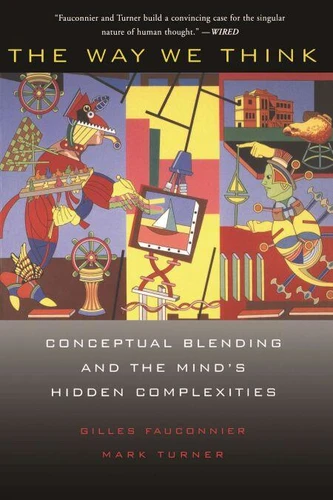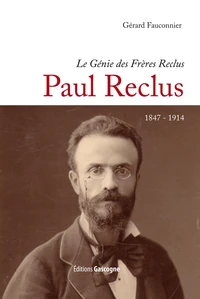The Way We Think. Conceptual Blending And The Mind's Hidden Complexities
Par : ,Formats :
Disponible dans votre compte client Decitre ou Furet du Nord dès validation de votre commande. Le format ePub protégé est :
- Compatible avec une lecture sur My Vivlio (smartphone, tablette, ordinateur)
- Compatible avec une lecture sur liseuses Vivlio
- Pour les liseuses autres que Vivlio, vous devez utiliser le logiciel Adobe Digital Edition. Non compatible avec la lecture sur les liseuses Kindle, Remarkable et Sony
- Non compatible avec un achat hors France métropolitaine
 , qui est-ce ?
, qui est-ce ?Notre partenaire de plateforme de lecture numérique où vous retrouverez l'ensemble de vos ebooks gratuitement
Pour en savoir plus sur nos ebooks, consultez notre aide en ligne ici
- Nombre de pages464
- FormatePub
- ISBN978-0-7867-2557-1
- EAN9780786725571
- Date de parution05/08/2008
- Protection num.Adobe DRM
- Infos supplémentairesepub
- ÉditeurBasic Books
Résumé
In its first two decades, much of cognitive science focused on such mental functions as memory, learning, symbolic thought, and language acquisition -- the functions in which the human mind most closely resembles a computer. But humans are more than computers, and the cutting-edge research in cognitive science is increasingly focused on the more mysterious, creative aspects of the mind. The Way We Think is a landmark synthesis that exemplifies this new direction.
The theory of conceptual blending is already widely known in laboratories throughout the world; this book is its definitive statement. Gilles Fauconnier and Mark Turner argue that all learning and all thinking consist of blends of metaphors based on simple bodily experiences. These blends are then themselves blended together into an increasingly rich structure that makes up our mental functioning in modern society.
A child's entire development consists of learning and navigating these blends. The Way We Think shows how this blending operates; how it is affected by (and gives rise to) language, identity, and concept of category; and the rules by which we use blends to understand ideas that are new to us. The result is a bold, exciting, and accessible new view of how the mind works.
The theory of conceptual blending is already widely known in laboratories throughout the world; this book is its definitive statement. Gilles Fauconnier and Mark Turner argue that all learning and all thinking consist of blends of metaphors based on simple bodily experiences. These blends are then themselves blended together into an increasingly rich structure that makes up our mental functioning in modern society.
A child's entire development consists of learning and navigating these blends. The Way We Think shows how this blending operates; how it is affected by (and gives rise to) language, identity, and concept of category; and the rules by which we use blends to understand ideas that are new to us. The result is a bold, exciting, and accessible new view of how the mind works.
In its first two decades, much of cognitive science focused on such mental functions as memory, learning, symbolic thought, and language acquisition -- the functions in which the human mind most closely resembles a computer. But humans are more than computers, and the cutting-edge research in cognitive science is increasingly focused on the more mysterious, creative aspects of the mind. The Way We Think is a landmark synthesis that exemplifies this new direction.
The theory of conceptual blending is already widely known in laboratories throughout the world; this book is its definitive statement. Gilles Fauconnier and Mark Turner argue that all learning and all thinking consist of blends of metaphors based on simple bodily experiences. These blends are then themselves blended together into an increasingly rich structure that makes up our mental functioning in modern society.
A child's entire development consists of learning and navigating these blends. The Way We Think shows how this blending operates; how it is affected by (and gives rise to) language, identity, and concept of category; and the rules by which we use blends to understand ideas that are new to us. The result is a bold, exciting, and accessible new view of how the mind works.
The theory of conceptual blending is already widely known in laboratories throughout the world; this book is its definitive statement. Gilles Fauconnier and Mark Turner argue that all learning and all thinking consist of blends of metaphors based on simple bodily experiences. These blends are then themselves blended together into an increasingly rich structure that makes up our mental functioning in modern society.
A child's entire development consists of learning and navigating these blends. The Way We Think shows how this blending operates; how it is affected by (and gives rise to) language, identity, and concept of category; and the rules by which we use blends to understand ideas that are new to us. The result is a bold, exciting, and accessible new view of how the mind works.





